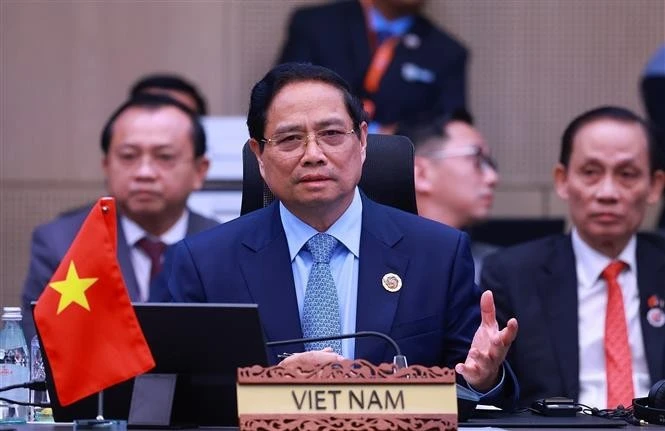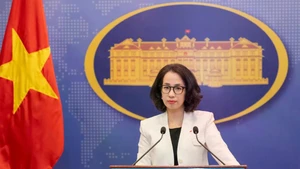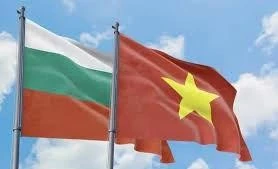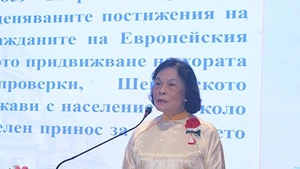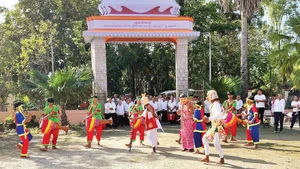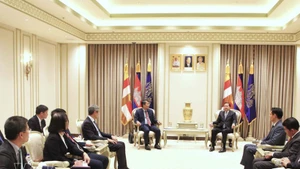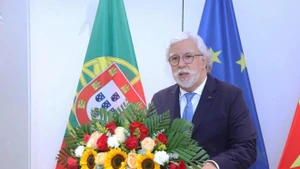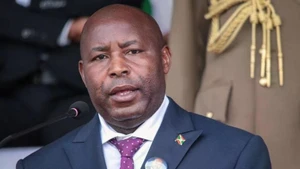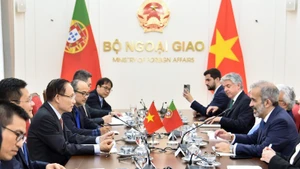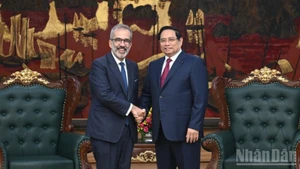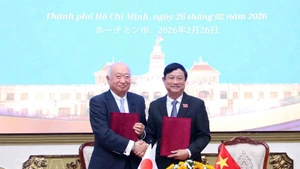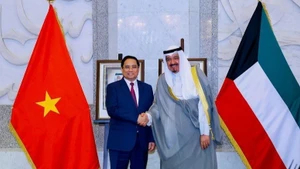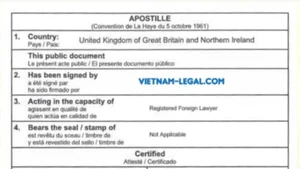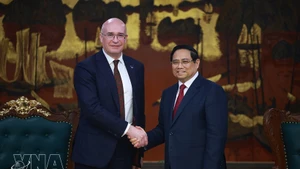In his remarks, Prime Minister Chinh called for enhanced economic connectivity towards a green, inclusive, and comprehensive transformation in the digital era, urging both sides to soon upgrade the ASEAN–Japan Free Trade Agreement. He highlighted the need to prioritise cooperation in digital and green economies, sustainable supply chains, and early completion of the ASEAN–Japan Air Services Agreement.
He also suggested stepping up cooperation in education, training, health care, science and technology, and environmental protection to narrow development gaps, especially in high-quality human resources training, digital and AI application, and preventive healthcare capacity.
The PM further proposed promoting vibrant cultural exchanges and requested Japan to enhance technology transfer and human resources training in nuclear power and safety for ASEAN countries.
Stressing the importance of maintaining peace, security, and stability in the region, including the peaceful settlement of disputes, particularly maritime ones, in accordance with international law and the 1982 United Nations Convention on the Law of the Sea (UNCLOS), the Vietnamese leader affirmed ASEAN’s readiness to play a constructive role in and facilitate dialogue among relevant parties, including through ASEAN-led mechanisms, to promote lasting peace and stability on the Korean Peninsula.
ASEAN leaders emphasised Japan as one of the bloc’s oldest and most reliable partners. Bilateral cooperation has grown substantively and dynamically, becoming a model of a practical and mutually beneficial Comprehensive Strategic Partnership. To date, ASEAN and Japan have completed 108 out of 130 action lines under the Joint Vision Statement on friendship and partnership.
Japan is currently ASEAN’s fourth-largest trading partner and fifth-largest foreign investor, with two-way trade reaching 236.6 billion USD and investment totalling 17.5 billion USD in 2024. Japan’s regional cooperation initiatives, such as Co-Creation, the Asia Zero Emissions Community (AZEC), and the Asian Energy Transition Initiative (AETI), have brought tangible benefits to people of both sides.
Looking ahead, ASEAN and Japan will prioritise cooperation in digital transformation, innovation, clean energy, education, health care, cybersecurity, climate change response, food security, and sustainable agriculture, leveraging the ASEAN–Japan Integration Fund (JAIF 3.0) to support project implementation.
ASEAN countries also expressed their wish to work with Japan to upgrade the ASEAN–Japan Comprehensive Economic Partnership Agreement (AJCEP) and effectively implement the Regional Comprehensive Economic Partnership (RCEP). They called on Japan to support ASEAN’s efforts to implement the Digital Economy Framework Agreement (DEFA), realise the ASEAN Power Grid (APG), and push for the effective operations of the ASEAN Centre for Public Health Emergencies and Emerging Diseases (ACPHEED) and the Regional Reserve of Medical Supplies. They also urged cooperation on the fifth phase of the Initiative for ASEAN Integration (IAI) Work Plan (2026–2030), as well as subregional collaboration and narrowing development gaps within ASEAN.
The leaders reaffirmed their commitment to upholding international law and a rules-based multilateral trading system, stressing the importance of dialogue, cooperation, and trust-building, along with peaceful dispute settlement based on international law, to sustain regional peace, security, and stability.
ASEAN and Japan adopted the Joint Statement on Further Promotion and Implementation of the ASEAN Outlook on the Indo-Pacific (AOIP).
In her remarks, the Japanese Prime Minister affirmed that Japan was the first country to support and will continue to support ASEAN’s Outlook on the Indo-Pacific (AOIP). She emphasised Japan’s commitment to aligning its major strategies and cooperation programmes with the ASEAN Community Vision 2045, while working with the bloc to further advance the three key pillars of ASEAN–Japan cooperation: peace and stability, socio-economic creation for the future, and a “heart-to-heart” partnership for future generations.
PM Sanae Takaichi proposed further strengthening cooperation in specific areas such as maritime security, cybersecurity, combating transnational crime, developing a safe, secure, and reliable AI ecosystem, disaster prevention, and the promotion of education and training.
